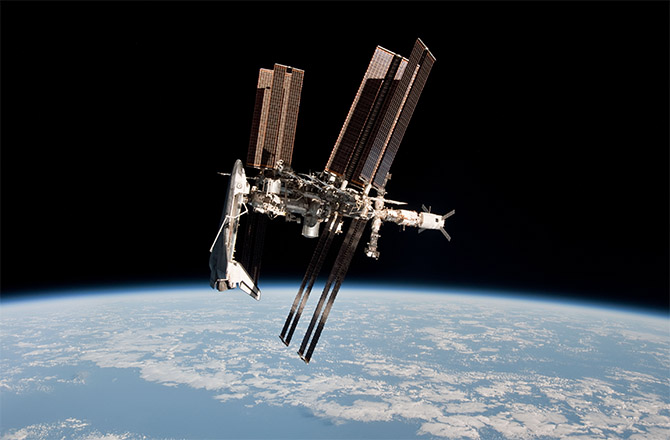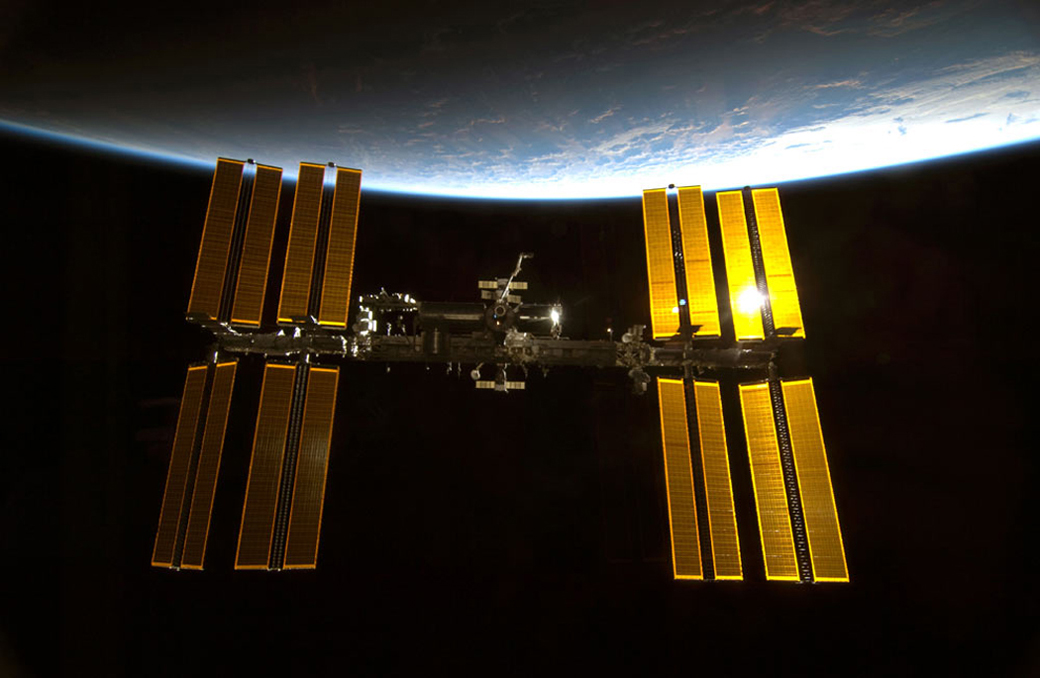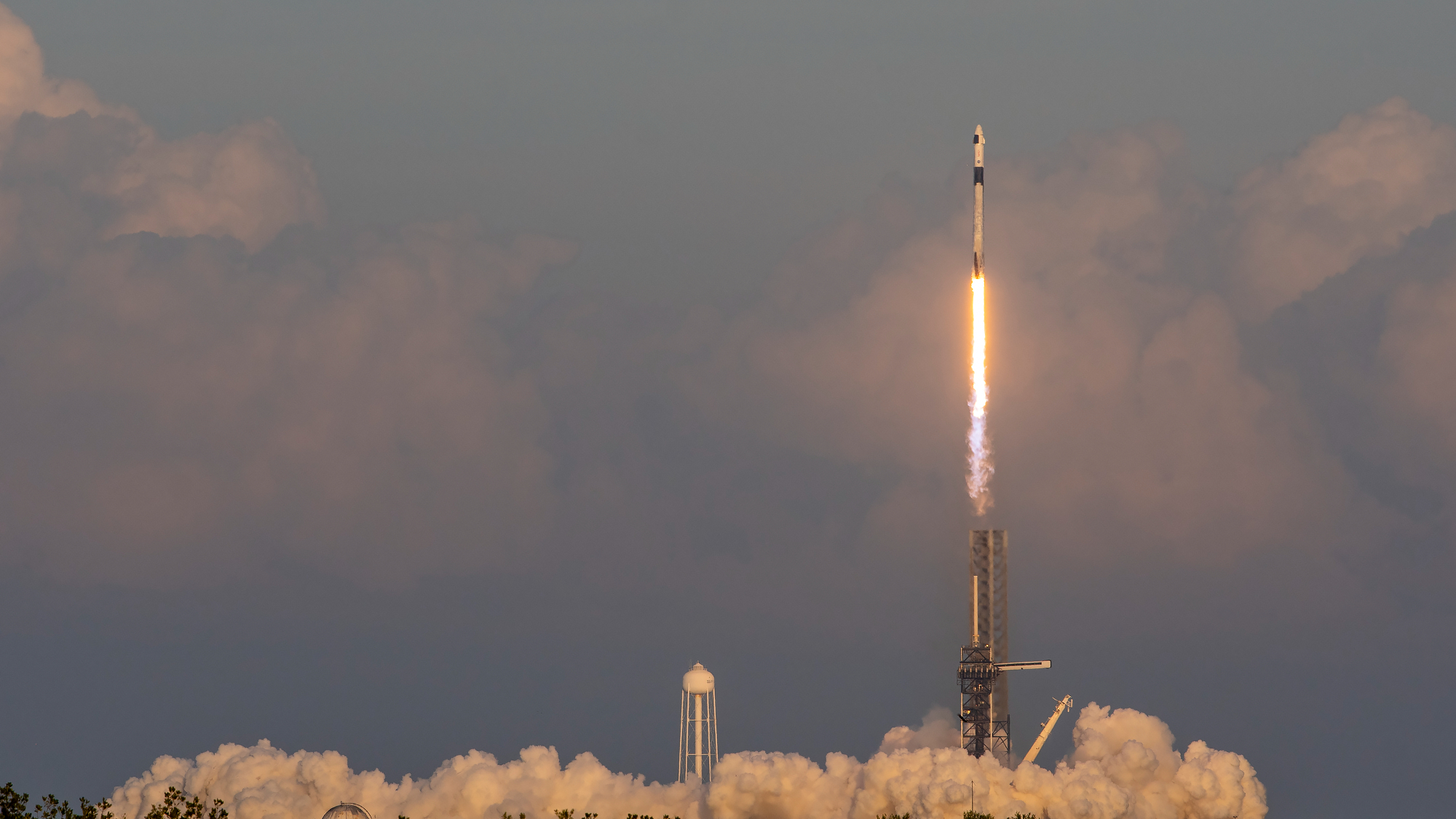Russia Will Spin-Off ISS Parts for New Space Station

The Russian space agency Roscosmos says it will support U.S. plans to keep the International Space Station (ISS) operating through 2024, but then wants to split off three still-to-be launched modules to form a new, independent orbital outpost.
VIDEO: Who Owns the International Space Station?
The announcement this week by a senior planning board reverses previous statements by Russian officials that Russia would end involvement in the 15-nation program in 2020 when current agreements expire. [Building the International Space Station in Photos]
Despite occasional rhetoric, the Russian-U.S. space marriage has been largely left out of growing economic and political tensions stemming from Russia’s invasion of Ukraine's Crimea peninsula last year.
The new Russian commitment puts pressure on station partners Europe, Japan and Canada, to fund a four-year extension as well, but those decisions are pending.
NEWS: NASA Gearing Up to Reassemble the Space Station
"This is excellent news, especially when read between the rhetoric. ISS is a key global symbol," former station commander and Canadian astronaut Chris Hadfield wrote on Twitter.
Get the Space.com Newsletter
Breaking space news, the latest updates on rocket launches, skywatching events and more!

"Detailed study and the final decisions are planned after the synthesis of reports of heads of rocket and space industry in subsequent meetings," Yuri Koptev, chairman of the Roscosmos' Scientific and Technical Council and former head of the Russian space agency, said in the statement.
NEWS: Space Station to Host its First Ever Female Cosmonaut
"Most importantly … there was a general coordinated point of view. (The council) approved the basic concept of the Russian manned space flight until 2025. We will take into account possible changes in funding, and the program will be updated," he said.
The Moscow Times reports that under President Vladimir Putin, "the space program has seen a measurable increase in funding, with a large 1.8 trillion ruble ($29 billion) boost pledged last year to cover Russia’s space activities through 2020."
An overall budget for Russia's space program through 2025 has not been announced, the paper added, noting that the value of the ruble has declined dramatically relative to the dollar since the start of 2014.
ANALYSIS: Space Station Laser Link Blasts Broadband from Orbit
Russia's Zarya module, launched in 1998, was the building block of the International Space Station. Zvezda was launched two years later and serves as the outpost’s control module. NASA built the station’s exterior truss along with power, cooling and communications systems and installed laboratory modules owned by the United States, Europe and Japan. Canada owns the station’s robotic arm.
The partners have been dependent on Russia to fly crews to the station since NASA retired its space shuttle fleet in 2011. A reconfiguration of the station is underway to prepare for new commercially owned space taxis that are slated to begin flying astronauts from Florida again in 2017.
This article was provided by Discovery News.
Join our Space Forums to keep talking space on the latest missions, night sky and more! And if you have a news tip, correction or comment, let us know at: community@space.com.

Irene Klotz is a founding member and long-time contributor to Space.com. She concurrently spent 25 years as a wire service reporter and freelance writer, specializing in space exploration, planetary science, astronomy and the search for life beyond Earth. A graduate of Northwestern University, Irene currently serves as Space Editor for Aviation Week & Space Technology.









